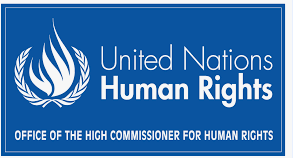Geneva (Web Desk): The recent Taliban ban on women and girls attending private medical institutions in Afghanistan has sparked widespread condemnation, including from the United Nations Human Rights Office (OHCHR) and prominent Afghan figures.
This move effectively eliminates the last remaining opportunity for women in Afghanistan to pursue higher education, particularly in healthcare fields like medicine, nursing, and midwifery.
The OHCHR warned that the ban would have dire consequences for Afghanistan’s already fragile healthcare system, which faces one of the highest maternal mortality rates in the world.
Without access to higher education, the country risks losing a new generation of female healthcare professionals, particularly midwives and nurses, who are essential for treating women, especially since male medical staff are prohibited from treating women unless accompanied by a male relative under Taliban rules.
Ravina Shamdasani, a spokesperson for OHCHR, described the directive as "discriminatory" and "short-sighted," adding that it will endanger the lives of Afghan women and girls by further eroding their access to healthcare. She stressed the importance of the Taliban respecting the human rights of women and girls in line with Afghanistan's international obligations.
The UN Assistance Mission in Afghanistan (UNAMA) also expressed concerns, noting that the ban would have a detrimental impact on both women's rights and the overall development of the country.
Richard Bennett, the UN Special Rapporteur on Afghanistan, called the ban “inexplicable and unjustifiable” and urged for its reversal, warning of its potential devastating effects on the entire population.
In the sporting world, Afghan cricket stars Rashid Khan and Mohammad Nabi also voiced their opposition to the ban.
Both players emphasized the central role of education in Islamic teachings, underscoring the Quran’s recognition of the equal spiritual worth of both men and women. Rashid Khan described the ban as "deeply unjust," while Nabi expressed similar sentiments, calling it heartbreaking.
The new restrictions are seen as yet another step in the Taliban's broader crackdown on women's rights since they regained control of Afghanistan in 2021.
The international community, including UN agencies and Afghan activists, continues to call for the reversal of these harmful measures, urging the Taliban to uphold the fundamental rights of Afghan women and girls.


